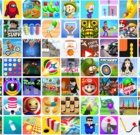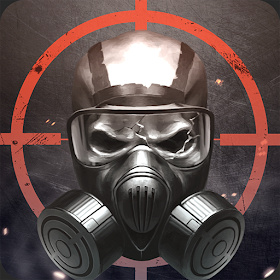Many people believe that video games only have a negative effect. Simulations and games dominate higher education. For example, sometimes occur situations like “Well, I need to do my homework but Cyberpunk released. What if somebody could do my math homework for me” Simulations provide a scenario-based learning experience. Students work together to solve real-world problems and situations. This fosters cooperation among students.
Designers should consider the user, the design, teaching modes and technical challenges when designing educational games. Educational games can be both fun and useful tools to improve skills and abilities.
Source: Pexels
Everybody needs skills. This is why it is important to develop them. If you just study theory, it takes time to learn skills. Simulators and games make this easier and faster in practice. Why? You will get the impression you want and the direction you need. It will also make it easier for you learn more and acquire better skills.
Games should be added to higher education because they require the support of instructors and students’ engagement. Higher education can benefit from simulations and games, for example:
Cognitive improvements
Research has shown that understanding concepts and learning how to apply them can improve cognitive function. Educational tasks can be assisted by simulation and game design. These are essential. Critical thinking is a way to build character. Critical thinking requires the ability to think independently and not feel afraid to express one’s opinion on any situation or issue. Scientists can also build personality in a unique way. Scientists learn facts from science that can be used to build personality and opinions. Attention must be paid to decision-making skills. This can also lead to excellent results. Simulators can also help with problem-solving skills. Students can benefit from simulations that link to the curriculum in order to better understand theoretical concepts.
Positive behaviour outcomes
Simulations and games can help improve behavior such as organizational skills, conflict resolution skills and adaptability. These games encourage soft skills like self-reflection and project management skills. These skills are essential for one’s future. Why? Why? We all put our lives into learning and education to improve our careers and build our skills.
These simulators and games can help you achieve impressive results in business that will only be possible for those who are visible. These simulators and games have a high demand and are widely used. Simulators enable students to improve their communication and social skills which, in turn, leads to better collaboration. Students learn more when they collaborate with one another. Through digital interactive games, students can strengthen their peer relationships.
Positive effective outcomes
Everyone works together to create positive change. You can make progress by working hard. You can make more progress if you spend more time learning. There is no other way. Online classes can improve learning outcomes such as self-efficacy, attention, satisfaction and confidence. Students who enjoy games and simulations make online learning more fun. Teachers and instructors play an important role in motivating students. They reward, support, and guide them through learning exercises and simulations. Students need teachers to support them. Teachers are well aware of this fact and will help students. They provide comfort to students which encourages them in their studies and gives them the confidence to succeed.
Research shows that students who learn together more often than they do alone are more successful at learning. These surveys were done on large samples over a longer time period to ensure reliable data. Research has proven that simulation education is more effective. Simulated education has a higher effectiveness than traditional methods. This is a fact that many educators are beginning to realize and use more frequently because they want students to learn more.
Simulators and games can be used by students to improve their affective, cognitive, and psychomotor skills. Simulators enable students to simulate real-life situations that will allow them to test their knowledge and make mistakes in safe and realistic environments. Simulators allow students to learn from real-life scenarios and use that knowledge in the future. This method gives students an advantage.
As supplementary education, simulators and games should not be used. To produce positive results, they require teacher support, student engagement, as well as quality mechanisms. Simulators and games can be used to help students learn new skills. Simulating and using games in your learning will help you not only avoid mistakes but also teach you how to behave under certain circumstances. Simulators and games should be motivating for students. Many people who work at trustworthy essay writing services get rid of stress by playing video games. They will be able make informed decisions and acquire the necessary skills. It will be easy and quick. It is important that they learn as much as possible, because their future and the success of everyone will depend on it.









